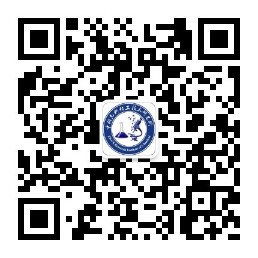欢迎访问中科光析科学技术研究所官网!
- 联系我们
- 关注微信

欢迎访问中科光析科学技术研究所官网!

免费咨询热线
400-635-0567|
儿童洗澡椅检测项目报价? 解决方案? 检测周期? 样品要求? |
点 击 解 答  |
本标准规定了特殊制作或一般可得到的康复辅助器具的分类。本分类包括那些需要他人帮助操作的康复辅助器具。下列术语不在本标准之内:——康复辅助器具的安装所用的术语;——由本标准分类中的单个康复辅助器具组合的解决办法;——药品;——专用于保健的康复辅助器具和设备;——非技术解决办法,比如他人辅助、导盲犬、唇读法;——植入器;——财政支持。
GB/T 21709的本部分规定了刮痧的术语和定义、手法、操作步骤与要求、注意事项与禁忌。本部分适用于刮痧技术操作。
本规范适用于新建铁路旅客车站建筑设计。
本标准适用于新建、改建和扩建的设计总床位数或老年人总数不少于20床(人)的老年人照料设施建筑设计。
本标准规定了旅游景区的交通、票务、信息、解说、配套、环境、卫生、安全、服务人员和投诉处理等各项服务质量要求。n本标准适用于辖区内接待国内外旅游者的旅游景区,包括风景区、文博院馆、寺庙观堂、休闲游憩区、自然保护区、城市公园、主题公园、森林公园、地质公园、游乐园、动物园、植物园及工业、农业、经贸、科教、军事、体育、文化艺术等各类旅游景区。
The technical report DIN CEN ISO/TR 12296 provides guidance for assessing the problems and risks associated with manual patient handling in the healthcare sector, and for identifying and applying ergonomic strategies and solutions to those problems and risks. Its main goals are - to improve caregivers' working conditions by decreasing biomechanical overload risk, thus limiting work-related illness and injury, as well as the consequent costs and absenteeism, and - to account for patients' care quality, safety, dignity and privacy as regards their needs, including specific personal care and hygiene. It is intended for all users (or caregivers and workers) involved in healthcare manual handling and, in particular, healthcare managers and workers, occupational safety and health caregivers, producers of assistive devices and equipment, education and training supervisors, and designers of healthcare facilities. Its recommendations are primarily applicable to the movement of people (adults and children) in the provision of healthcare services in purposely built or adapted buildings and environments. Some recommendations can also be applied to wider areas (e. g. home care, emergency care, voluntary caregivers, cadaver handling). The recommendations for patient handling take into consideration work organization, type and number of patients to be handled, aids, spaces where patients are handled, as well as caregivers' education and awkward postures, but do not apply to object (movement, transfer, pushing and pulling) or animal handling. Task joint analysis in a daily shift involving patient handling, pulling and pushing or object handling and transport is not considered.
This part of BS 6465 gives recommendations on the location, numbers,siting, design and management of public toilets. It is applicable to theprovision of new facilities and to the retention and refurbishment ofexisting facilities.This standard is applicable to the following types of public toilet facilities:a) municipal public on-street toilets;b) off-street publicly available toilets (e.g. in shopping malls);c) automatic public conveniences (APCs);d) street urinals;e) facilities for disabled people, from the point of view of scale ofprovision and location;f) baby changing and ancillary toilet facilities.
 前沿科学
微信公众号
前沿科学
微信公众号
 中析研究所
抖音
中析研究所
抖音
 中析研究所
微信公众号
中析研究所
微信公众号
 中析研究所
快手
中析研究所
快手
 中析研究所
微视频
中析研究所
微视频
 中析研究所
小红书
中析研究所
小红书